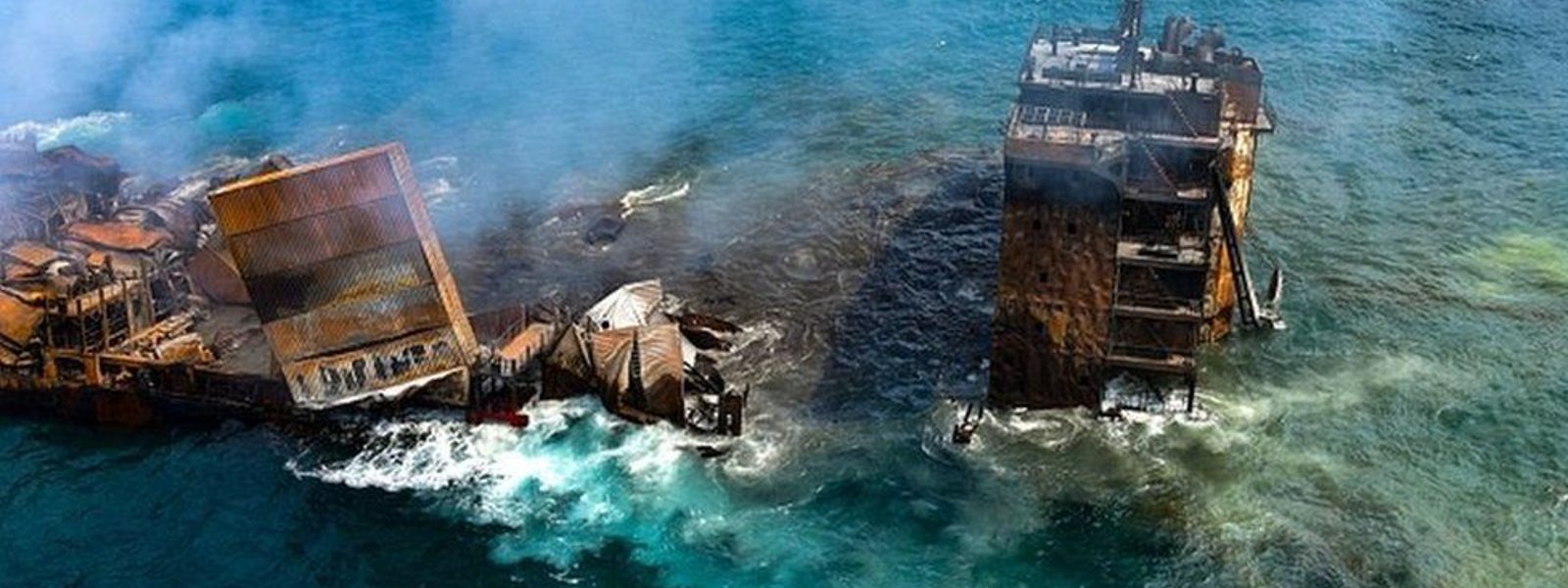.webp)

Rs. 911 Mn received for X-Press Pearl compensation
COLOMBO (News 1st); The Ministry of Fisheries says that another Rs. 911 Mn was received as compensation to be awarded to the Sri Lankan fishermen who were affected by the fire that broke out on board the X-Press Pearl Cargo Vessel in the seas off Colombo.
The Ministry of Fisheries said X-Press pearl insurers made the compensation payment.
Accordingly, the Ministry said that arrangements will be made to distribute this money among 15,032 fishermen identified in Gampaha, Colombo, and Kalutara districts.
Earlier on two occasions, Rs. 348 Mn and Rs. 335 Mn given by the X-Press pearl insurers were distributed to the fishermen as interim compensation through the Divisional Secretariats in the respective localities of the affected fishermen.
All fishermen affected by the X-Press Pearl Maritime Disaster, depending on their type of vessel, method of fishing, and loss of income, received Rs. 80,000 to Rs. 240,000 as compensation so far.
Earlier, Sri Lanka authorites imposed a ban on fishing on the sea area from Negombo to Panadura due to the affects of the X-Press Pearl Maritime Disaster, and this ban directly affected over 15,000 Sri Lankan fishermen.
The X-Press Pearl incident is the worst maritime disaster to have struck Sri Lanka. It has had a significant impact on Sri Lanka’s sensitive coastal environment, local communities and the economy.
Moreover, the event continues to unfold, and its active pollution generation phase will only come to closure with the elimination of the risks from the wreck and containers lost at sea.
Along with uncertainties of cascading environmental damage, the incident’s complexity stems from the range of pollutants involved - oil, hazardous chemicals and plastics – and the lack of clarity regarding the nature and status of a substantial part of the vessel’s cargo.
Moreover, the growing geographic extent of the plastic spill - the largest on record - is expected to have transboundary impacts further compounding the problem.
Other Articles
Featured News





.png )
-796566_550x300.jpg)










-794314_550x300.jpg)
















.gif)